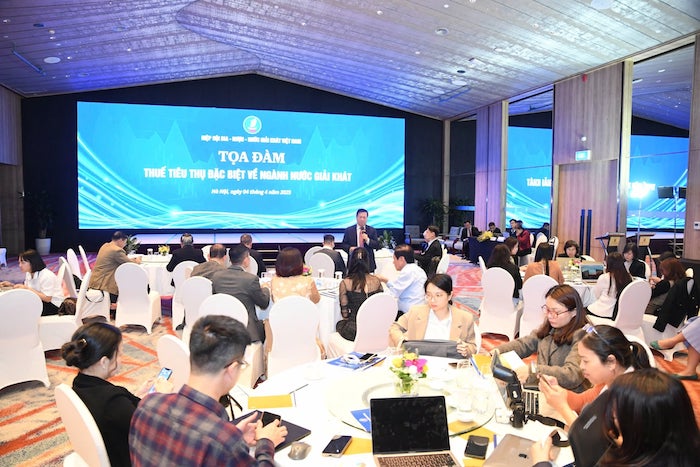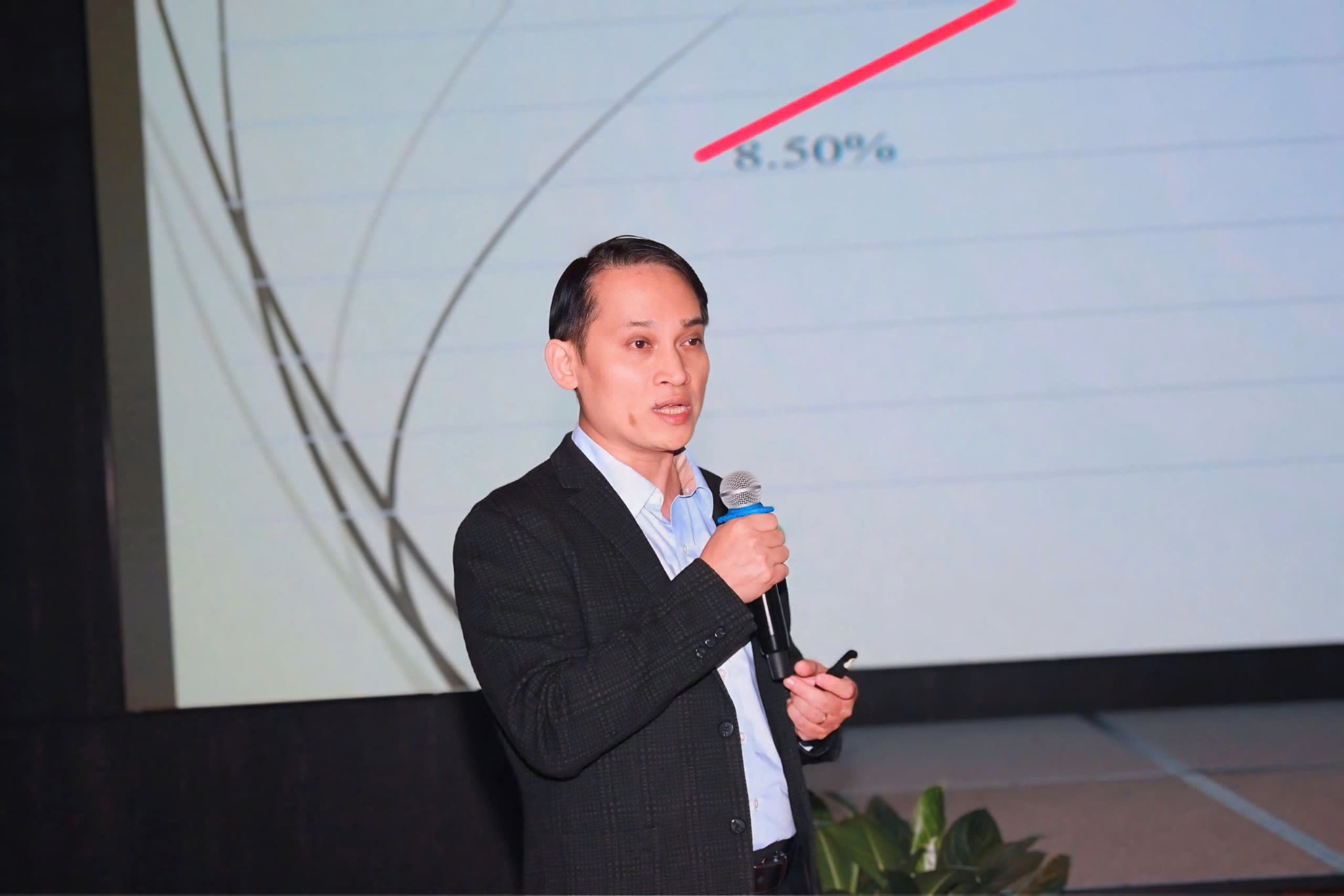In the afternoon of 4.4, at the special consumption tax seminar on the beverage industry organized by the Vietnam Beer - Alcohol - Beverage Association (VBA), Ms. Chu Thi Van Anh - VBA Vice Chairman said: The Law on Special Consumption Tax (SCT) (amended) has been submitted to the National Assembly for comments at the 8th session and will continue to discuss and approve at the 9th session.
One of the newly added policies in the Draft is " Expanding the basis for tax calculation", which includes the regulation: "Including sugary soft drinks according to Vietnamese Standards (VND) with sugar content over 5g/100ml to the subject subject of special consumption tax" with a tax rate of 10% because this is a new product, with the purpose of protecting people's health, minimizing overweight and obesity and in accordance with international practices.
The opinions of many experts and scientific studies show that the application of special consumption tax as in the Draft has not ensured the goal of "preventing and reducing overweight and obesity", is not effective in regulating consumption behavior; and at the same time, has not ensured the principle of fairness of tax policy.
On the other hand, the drafting agency has not yet explained the basis for the proposal to apply a 10% special consumption tax rate to sugary soft drinks.

"This is an issue that many businesses in the industry are concerned about. VBA Association and beverage industry enterprises expect policymakers to consider not adding sugary NGK products to the list of subjects subject to special consumption tax" - Ms. Van Anh said.
Sharing about the problem of overweight and obesity in Vietnam, Associate Professor, Dr. Nguyen Quang Dung - Head of the Department of Nutrition and Food Safety - Hanoi Medical University said: The obesity rate in Vietnam tends to increase, however, it is well controlled and among the lowest in Southeast Asia and the world.
Urban students have a higher rate of overweight and obesity than rural students (41.9% to 17.8%) but have a lower rate of freshwater consumption (≥3 times/week): 16.1.% compared to 21.6%.
Vietnam has increased the consumption of nutritious foods, but also increased the consumption of foods high in fat, protein, milk and dairy products, sugar, products with high sodium (salt) content. Foods regularly consumed by urban and rural children are cereals - starches, vegetables, fruits, protein, fats, milk and dairy products in high proportion.
"There are many causes of non-communicable diseases, including overweight and obesity. Sugary soft drinks are not the main and only cause of overweight and obesity. The habit of consuming foods high in fat, protein, high in salt and energy leads to overweight, obesity and the risk of non-communicable diseases" - Associate Professor Nguyen Quang Dung said.

Associate Professor Dung recommends promoting nutrition education for the entire population, especially for children. At the same time, there should be policies to encourage a healthy lifestyle, enhance lifestyle, and have adequate physical exercise; Reduce sedentary time for children both at school and at home...
He and many experts believe that there should continue to be comprehensive scientific studies on the effects of food consumption on overweight and obese people. When the main cause has not been identified, the ultimate goal of reducing the rate of overweight and obesity will be difficult to achieve.
Proposed starting tax rate of 5%
Mr. Vu Tu Thanh, Deputy Director of the region and Chief Representative of the US-ASEAN Business Council, said: "In case the Government has researched and has full scientific and practical basis including international experience related to taxpayers, ensuring the goal of regulating consumption behavior to protect the people's health, we recommend the National Assembly and the Government to consider an appropriate application for enterprises, to reduce the impact of the enterprise, to reduce the impact of the enterprise, to reduce the impact of the enterprise, to reduce the impact of the enterprise. The preparation of financial resources, adjusting product formulas, helping businesses continue to grow, contributing to achieving the growth target of 8% by 2025 and 2 numbers in the period of 2026-2030.
Specifically, consider postponing the application of special consumption tax on sugary soft drinks to January 1, 2028 with a starting tax rate of 5%.
